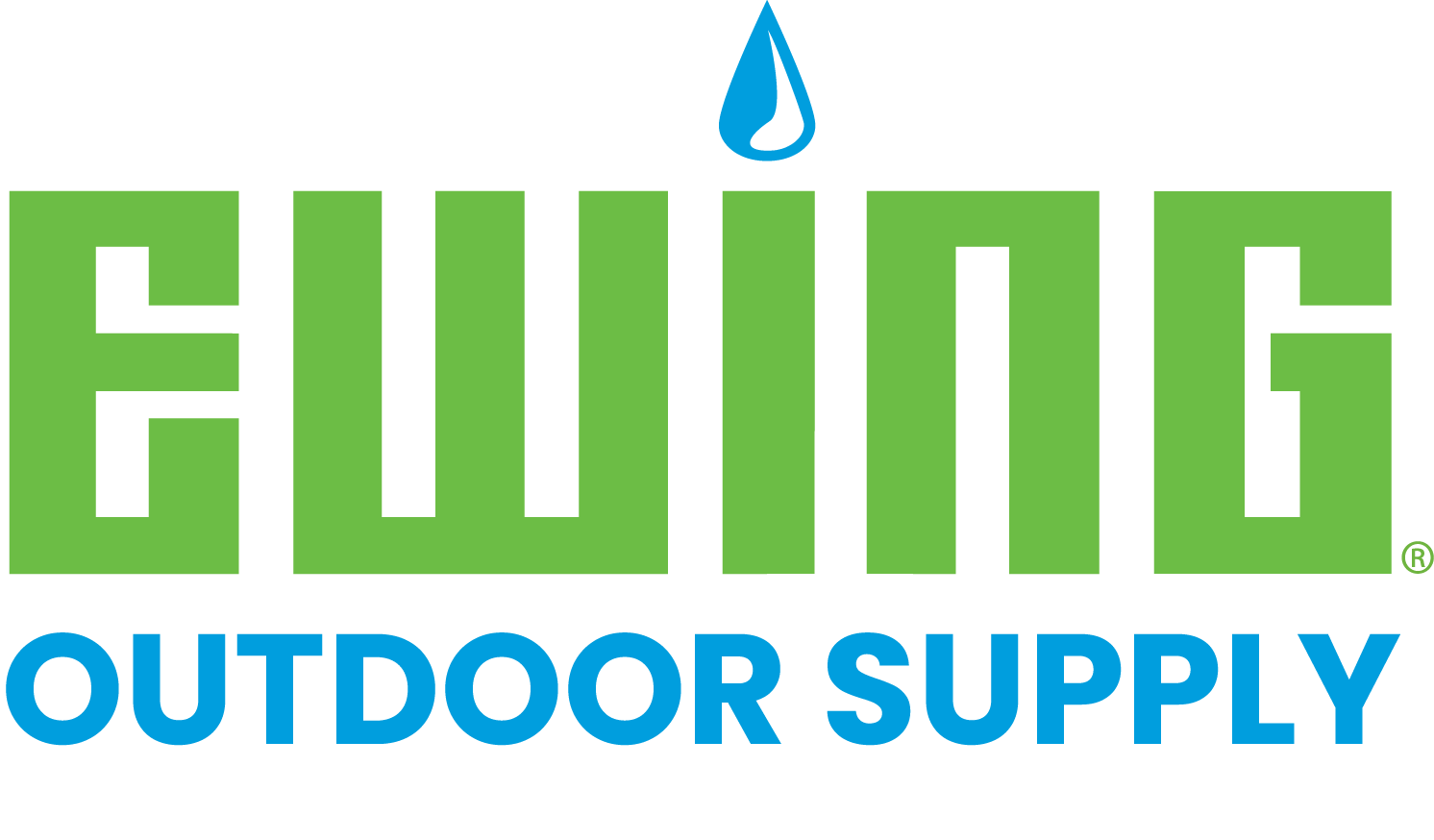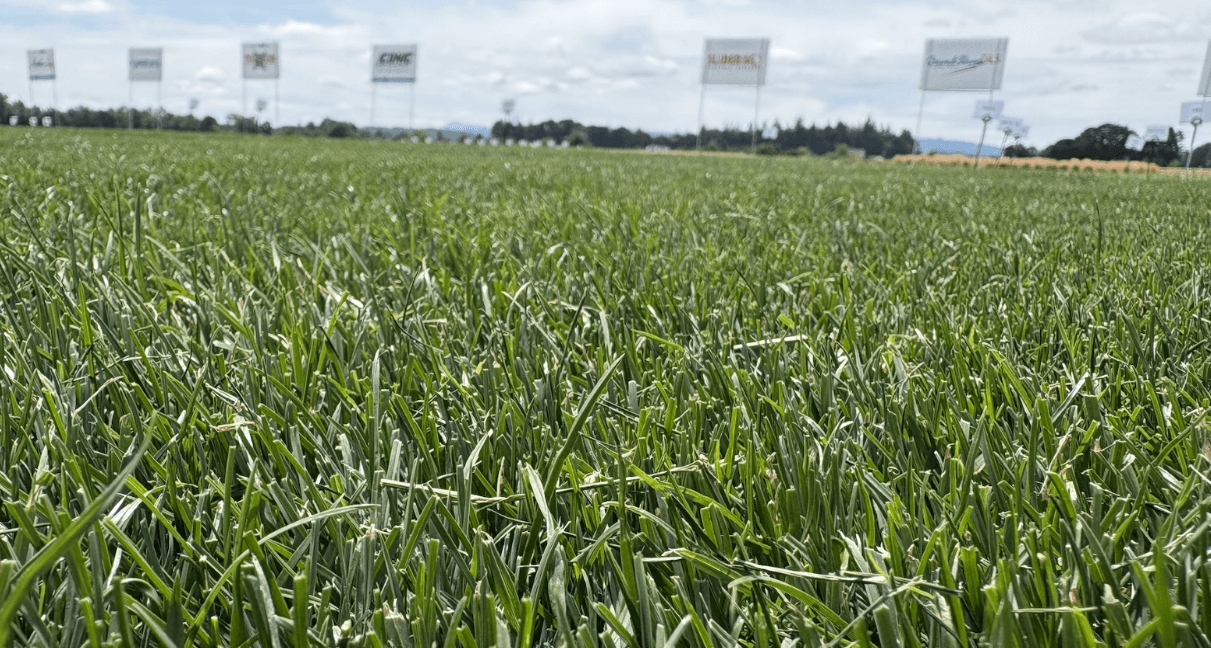At Ewing Outdoor Supply, quality is more than a promise; it’s a commitment rooted in knowledge and trust. That commitment recently led me and several team members to visit two of Ewing’s trusted seed partners: DLF USA and Mountain View Seeds.
The purpose of this trip was to educate and build awareness among our staff. Understanding the entire seed process, from plant breeding to production and finished product, continues to sharpen our team’s skill set to better serve our customers.

We were hosted by Sean Chaney, vice president of U.S. wholesale at DLF USA, and Aaron Kuenzi, seed division manager at Mountain View Seeds. Both companies align closely with Ewing’s mission of offering only the best quality and service to customers.
Together, we take pride in long-term sustainable relationships built on trust and results.
Seeing Where Quality Begins

During the visit, team members toured research farms, blending facilities and production sites, gaining firsthand insight into how grass seed “comes to life.” From genetics and breeding to cleaning, testing, blending and packing, the process is far more rigorous than many realize.
Key takeaways
- Scale of production: Across the U.S. and Canada, approximately 300,000 acres of seed crops are grown annually, with Ryegrass and Turf-Type Tall Fescue being the largest crops.
- Facilities toured:
-
-
- DLF blending and warehousing (OR): 200,000 sq. Ft.
- MVS blending and warehousing (OR): 200,000 sq. Ft.
- DLF Philomath Research Station: 25 acres of turfgrass breeding and testing.
- MVS Peak Plant Genetics farm: 86 acres dedicated to variety development and trials.
-
- Production capacity: On average, DLF and Mountain View each can blend and bag up to 700,000 pounds of grass seed in a single labor shift cycle (roughly 24 hours) to meet market demand.
- Research timeline: Developing a single new turfgrass variety can take 6-12 years of research, breeding, and field trials before it ever reaches your project.
- Product diversity: Both partners develop and produce numerous varieties, from drought-tolerant tall fescues to heat-resistant bluegrasses, to meet regional and performance needs.
“The trip was very eye opening,” said Keith Loggins, Ewing Account Manager. “The overall process of cultivating and bringing a new variety to market is quite intense. It helped build confidence for when I discuss seed with customers and prospects.”
Programs like A-List, which develops turfgrass varieties requiring less water, fewer chemicals and improved heat tolerance, are prime examples of innovation supporting landscape sustainability and cost savings for contractors.
“My biggest takeaway was seeing behind the scenes of what goes into something as simple as seeds in a bag,” said Brian Bennett, Ewing’s Regional Turf Products Category Sales Manager. “Before this trip, I thought I had a clue but was blown away by the scale, science and technology that brings our seeds to life.”
Why This Matters to Customers
.png?width=1846&height=1092&name=Tractors%20Photo%20(1).png)
These insights aren’t just important to our team – they directly benefit customers. When contractors, landscapers, and turf managers understand how seed is bred, cleaned, tested, and blended, they can trust the products they’re using will perform as expected in the field.
Knowing that our EMPRO-branded grass seed comes from partners with rigorous research, production, and quality standards means customers can plan projects with confidence, avoid costly rework due to poor seed performance, and meet client expectations for healthier, more sustainable turf.
“Grass seed has always been a ‘faceless’ vendor in Arizona,” said Kyle Luis, Ewing's Arizona Market Manager. “Getting an in-depth personal tour opened my eyes to how much hard work and dedication goes into making sure our grass seed is the best we can get every year.”
For customers, this level of commitment ensures:
- Consistent results: High purity and germination rates mean fewer failed areas and better establishment, saving time and labor costs.
- Improved sustainability: Access to varieties requiring less water and fewer inputs supports environmental goals and local regulations.
- Reliable availability: Strong supplier relationships and sourcing strategies help maintain supply even in challenging market conditions.
- Product transparency: Knowing what’s in the bag matches what’s promised on the tag, eliminating uncertainty when specifying or bidding projects.
While not all seed blends in the market are created equal, our commitment to quality sourcing and education helps customers make informed decisions, avoid inferior products, and deliver the best results to their own clients.
Building Knowledge, Building Trust

Beyond education on seed production, this visit reinforced my confidence in our EMPRO product line and the suppliers who stand behind it.
There are no smoke or mirrors. What we promise is what customers get.
“We deal with the very best seed companies in the business,” said Kyle Denham, Ewing’s Southeast Regional Manager. “Not only is their product top notch, but so is their service. These companies remind me of Ewing and the passion they have for their business. The consistency and working on cultivars for 6-12 years before it hits market is mind blowing.”
With a full range of turfgrass seed products to meet agronomic, performance and economic needs across regions, Ewing remains committed to empowering contractors, landscapers and turf managers with the knowledge and products they can trust.
At Ewing, quality begins long before seed reaches the shelf. It starts with partners who share the same mission: providing the very best so customers can grow with confidence, season after season.




